Tui cũng có bản Tiếng Việt cho bài này.
This was a pretty successful year when I yet again surpassed my reading goal of 11/10 books. Most of the books I read this year weren’t too depressing, perhaps I have somewhat forgive myself and allowed it to accept more positive things (although not much more ).
1. The Temple of the Golden Pavilion - Mishima Yukio

My curiosity and fascination with Mishima Yukio actually began as early as the start of 2021 (even before my first-ever job interview). However, it wasn’t until this year that I finally got the chance to truly read one of his works.
At the beginning of 2021, I accidentally came across the film Mishima: A Life in Four Chapters by director Paul Schrader—who happens to be the co-writer of many of Martin Scorsese’s films like Raging Bull and Taxi Driver. In fact, Taxi Driver turned out to be the starting point of the Mishima film. I have to quote an interview of his (because his way of thinking is just brilliant):
Taxi Driver was a story of the pathology of suicidal glory, this notion (often Christian notion) that through my own suffering I can transcend myself. And I wanna do another film like that. And I thought, wait a second, if I’m gonna do another story about this subject, why don’t I go to the other end of the bookcase? Go to the other end of the world; go to the Asian culture; go to the homosexual; go to a man who’s extremely successful; go to an artist, a poet who yet labours under the same pathology. That through Bushido, through self-sacrifice, I will transmogrify. And so that became non-Taxi Driver Taxi Driver.
Anyway, after watching the film, I was deeply impressed by Mishima. Not because I understood his philosophy of life, but because I resonated with his artistic yearning—his analysis, explorations, fears, and attempt to control Beauty.
I decided to read The Temple of the Golden Pavilion because Reddit said it was the easiest to read. But personally, I found it quite difficult. I feel that Mishima’s writing is rather ornate, and when translated into English, many parts lose their beauty and become distorted and harder to grasp.
I rated this book a 3/5. While the story was somewhat interesting, it didn’t evoke much emotion in me. Perhaps I read it at the wrong time. Still, it was enough to make me want to explore Mishima’s other works in the future.
A few of my highlights:
Because, although beauty may give itself to everyone, it does not actually belong to anybody.
Father Zenkai was devoid of vanity. High-ranking prelates, who are constantly being asked to judge everything from human character to paintings and antiques, are apt to fall into the sin of never giving a positive judgment on anything for fear of being laughed at later in case they have been wrong.
2. Blind Willow, Sleeping Woman - Murakami Haruki
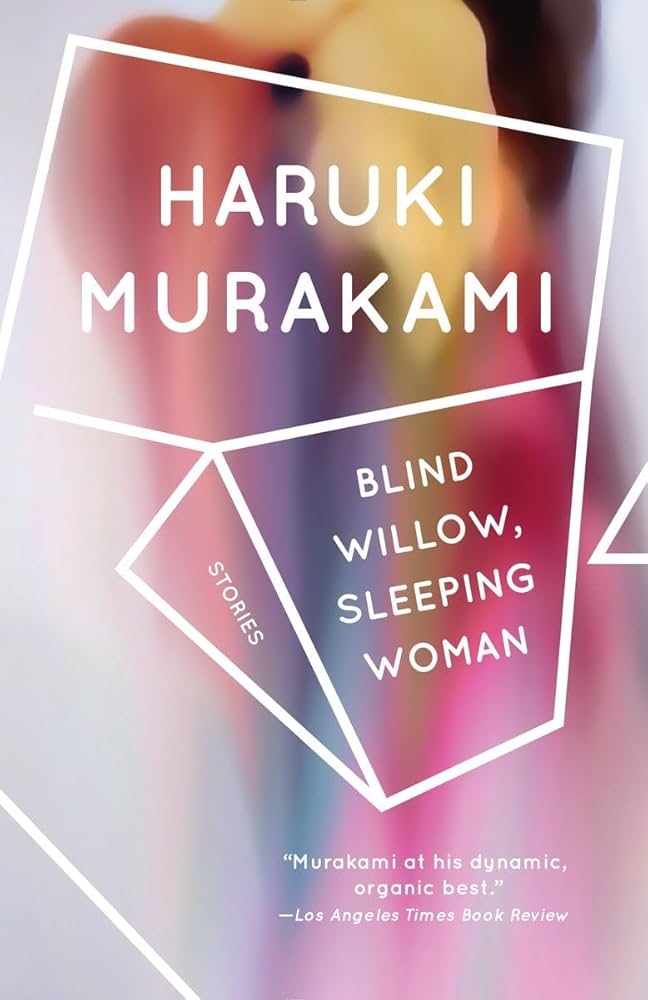
As per usual, every year I have to read at least one book by Murakami, and I decided to kick off this year with a short story collection instead of a novel to recover after reading Mishima. I figured that novels require more effort to read (and write), just as Murakami himself mentioned in the introduction to this book
“I find writing novels a challenge, writing stories a joy. If writing novels is like planting a forest, then writing short stories is more like planting a garden.”
I rated this book 3/5 with the review:
It does have some interesting & thought provoking stories but most of them felt too much like an experiment & lack that special immersive quality of those well-written Murakami stories.
Looking back after more than half a year, I think this review was somewhat unfair. I’ve realised that many stories in this collection took quite a bit of time to truly sink in. You could say that my immersion in these stories only happened when I re-read them the second or third time through fragmented memories of my own. Updated rating: 4/5.
Some of my favourites:
- Birthday Girl
- New York Mining Disaster
- Dabchick
- Man-Eating Cats
- The Year of Spaghetti
- Crabs
- Firefly
- Hanalei Bay
- A Shinagawa Monkey
3. What We Talk About When We Talk About Love - Raymond Carver
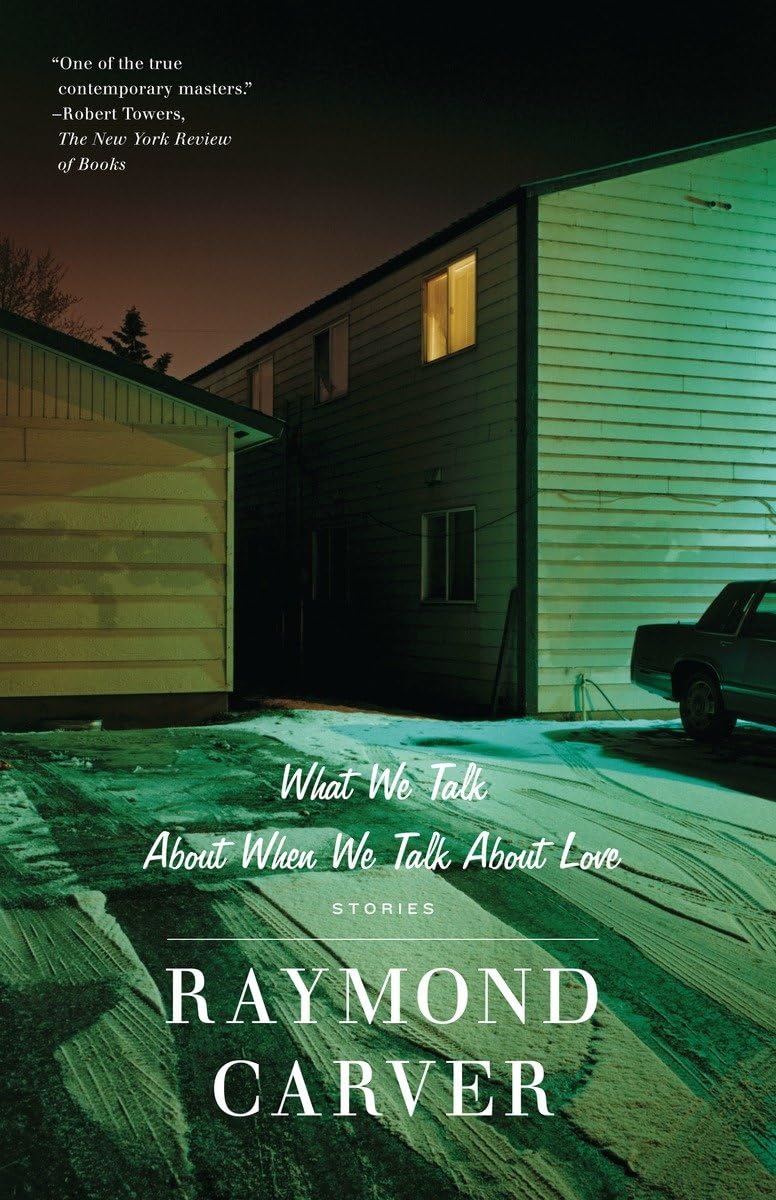
I don’t remember exactly how I came to know about Raymond Carver, but I vividly recall the feeling of “that’s it?” I felt when reading “Why Don’t You Dance” from this short story collection. The moment you open yourself up to let the characters in the story move, speak, and live as if they’re free from the chains of the words on the page—poof! The page goes blank. Because that’s all there is to the story. And most of the stories in this collection are like that.
It sounds strange, but it makes perfect sense. Carver pushed the “less is more” philosophy to its absolute limit in this collection. These stories don’t need to be any longer because they’ve already told what they needed to tell. It’s just that they lack a clear conclusion, much like every moment in our life.
Rating: 4/5. This might be my favourite short story collection of the year.
My favourites:
- Why Don’t You Dance?
- Viewfinder
- Gazebo
- The Bath
- Tell the Women We’re Going
- So Much Water So Close to Home
- The Third Thing That Killed My Father Off
- A Serious Talk
- Popular Mechanics
4. Letters to a Young Poet - Rainer Maria Rilke

Reason why I read this book is actually quite funny. I discovered Rilke via Mishima. He mentioned Rilke in an interview, saying:
Rilke writes somewhere that modern man can no longer die a dramatic death. He dies in a hospital room, like a bee inside a honeycomb cell. That’s how I recall it, at least.
This line had a significant impact on me at the time. So, I decided to learn more about Rilke but, overwhelmed with work, I put it off by adding a few of his books to my “to-read” list.
Fast forward to 2024, it was a lovely Thursday evening. I was strolling through the streets looking for dinner, even though I wasn’t particularly hungry after a heavy lunch. I stumbled upon a bookstore that was still open, even though it was nearly 6 PM. Most shops usually follow business hours, so I was curious that it was still open. I decided to step in. Among the pile of “classics,” a small, palm-sized, hardcover book titled Letters to a Young Poet stood out.
Remembering that it was on my “to-read” list, I foolishly took it straight to the counter. Since it was a small book, I figured it would cost around $10-$15 at most, but when I went to pay, it turned out to be $30. So, you could say I read this book 50% because of Mishima, 50% because of my bad spending, and 0% because of Rilke himself. This might have been one of my worst financial decisions this year.
That said, I still rate it 4/5. While I didn’t completely agree with all of Rilke’s advices, some lines resonated deeply with me:
We are solitary. We can delude ourselves and act as if it were not so. That is all we can do. How much better to realize from the start that that is what we are, and to proceed from there. It can, of course, make our heads spin, for everything our eyes rest upon will be taken from us. No longer is anything near, and what is far is endlessly far.
We have no reason to distrust our world, for it is not against us. If our world has fears, they are our fears. If it has an abyss, it belongs to us. If dangers appear, we must try to love them.
And if we will live with faith in the value of what is challenging. then what seems most difficult will become our truest and most trustworthy friend. How could we forget the myths about dragons who at the last moment transform into princesses? Perhaps all the dragons of our lives are princesses waiting to see us act just once with courage. Perhaps every terror is, at its core, something helpless that wants our help.
Don’t try to find the answers now. They cannot be given anyway, because you would not be able to live them. For everything is to be lived. Live the questions now. Perhaps you then may gradually, without noticing, one day in the future, live into the answers.
Most experiences are unsayable; they become real to us in a space no word has entered. And least sayable of all are works of artistic expression, which live on, full of mystery, compared to our brief lives.
5. Territory of Light - Tsushima Yuko
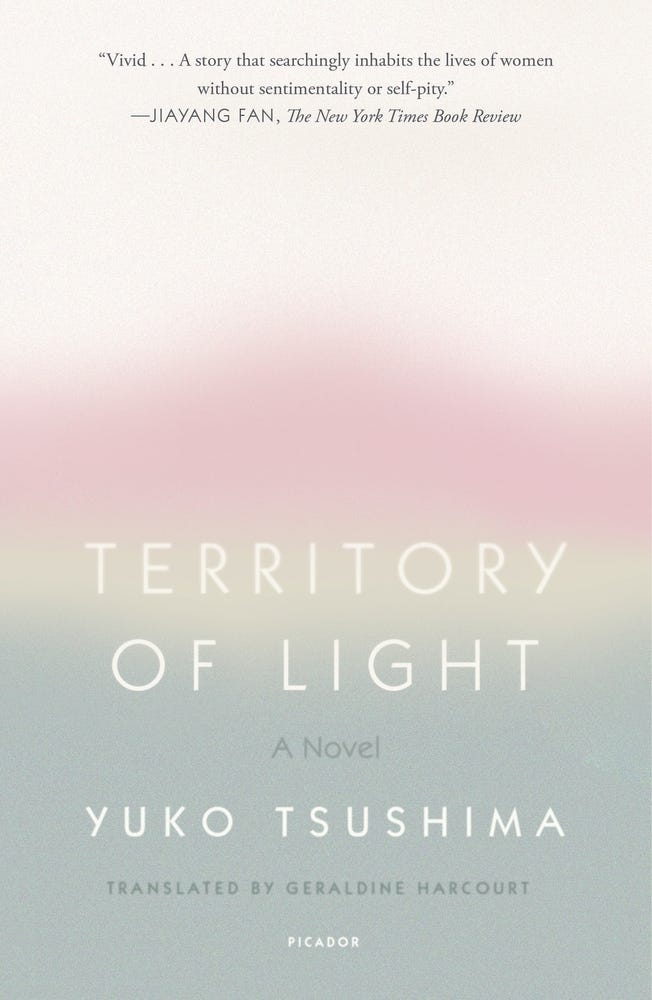
More than a year after reading No Longer Human by Dazai Osamu, I discovered that after two marriages and three suicide attempts, he left behind three children, one of whom is Tsushima Yuko.
Territory of Light is the story of a woman struggling to regain control of her life after a divorce while raising her young child, battling her own exhaustion and societal pressures.
I can’t say much about this book because I think I read it a bit too early. There were moments where I saw myself and my mother from the past, but overall, this is a book deeply rooted in the perspective and struggles of women, making it hard for someone like me to fully grasp its depth. 3/5.
6. The Sound of the Mountain - Kawabata Yasunari
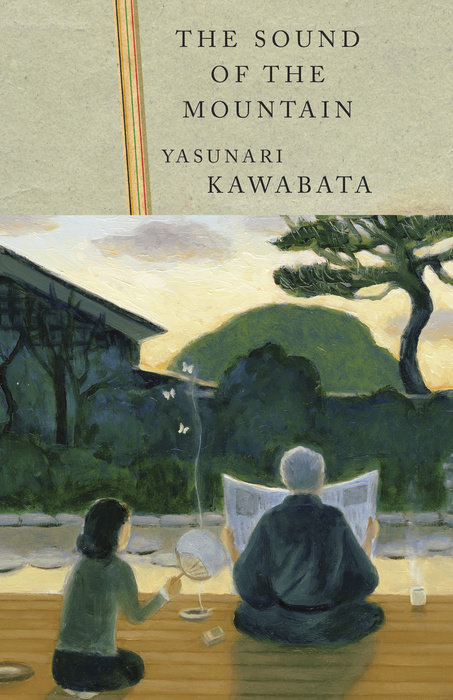
One of the most influential books to me in recent years is Snow Country by Kawabata. Personally, I can’t stop admiring him because, I think somehow, Kawabata wrote this entire novel with little poems (at least in the English translation):
The train came out of the long tunnel into the snow country. The earth lay white under the night sky. The train pulled up at a signal stop.
So it’s no surprise that I decided to stock up on a few more of Kawabata’s books for the winter month in August.
My first impression of this book was that the character names in this book seem
designed to confuse readers . About 70% of the characters in this story are
in the same family, and they all have names ending with ko: Yasuko, Kikuko,
Fusako, Eiko, Kinuko, Satoko, Kuniko, Natsuko. Near the end of the year, my
Japanese flatmate told me that names ending in ko are old-fashioned and no
longer commonly used in Japan.
I think in this book, Kawabata’s poetic beauty is still preserved, though it’s less intense compared to Snow Country. For the most part, I sense a quiet beauty of family life.
3.5 / 5.
A few highlights:
Only when she snored did he reach out to touch her. The fact seemed to him infinitely saddening.
He took up a magazine lying at his pillow. Then the room being sultry, he got up, opened a shutter, and sat down beside it. The moon was bright. One of his daughter-in-law’s dresses was hanging outside, unpleasantly gray. Perhaps she had forgotten to take in her laundry, or perhaps she had left a sweat-soaked garment to take the dew of the night.
How many years had it been since he had stopped sking Yasuko about her physiological processes? Since the change of life, Yasuko herself had said nothing. Had it become a question not of vigor but of decay?
“A dream. And the national monument was a dream too. Don’t put faith in what dreams decide for you.” He wiped his face with the palm of his hand.
…and there was a few other highlights that I forgot to note down.
7. White Nights - Fyodor Dostoevsky
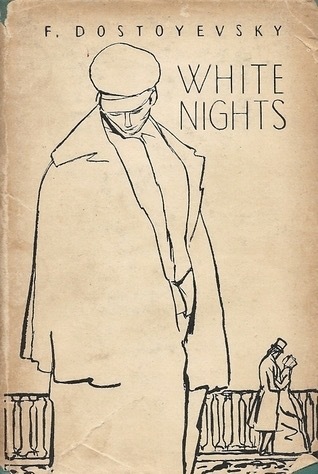
This is the first time I read Dostoevsky. While he’s famous for works like Crime and Punishment and The Brothers Karamazov, I felt I wasn’t quite ready for them. Reading books is like hiking, you need to be fit and have the right gears before setting off.
So this year, I chose White Nights to see how far I could go. And to my surprise, I gave it a 5/5. Looking back, the writing style is quite “naive,” but it surprisingly fits the atmosphere of the story and the perspective of the protagonist. However, it still doesn’t fully justify the 5/5 rating. I mostly rated it highly because of subjective reasons. At that time, I was going through what the main character went through… but that’s a story for another time.
If I were to rate it again, I’d give it 4/5. A solid start with Dostoevsky. I might try another one of his books next year.
A few highlights:
Oh, how unbearable is a happy person sometimes!
It suddenly seemed to me that I was lonely, that everyone was forsaking me and going away from me.
At this moment a thousand valves have opened in my head, and I must let myself flow in a river of words, or I shall choke. And so I beg you not to interrupt me, Nastenka, but listen humbly and obediently, or I will be silent.
“I like you because you have not fallen in love with me. You know that some men in your place would have been pestering and worrying me, would have been sighing and miserable, while you are so nice!” Then she wrung my hand so hard that I almost cried out. She laughed. “Goodness, what a friend you are!” she began gravely a minute later. (Oh god, my heart still hurt reading these lines…)
…And a few highlights also got lost.
8. First Person Singular - Murakami Haruki
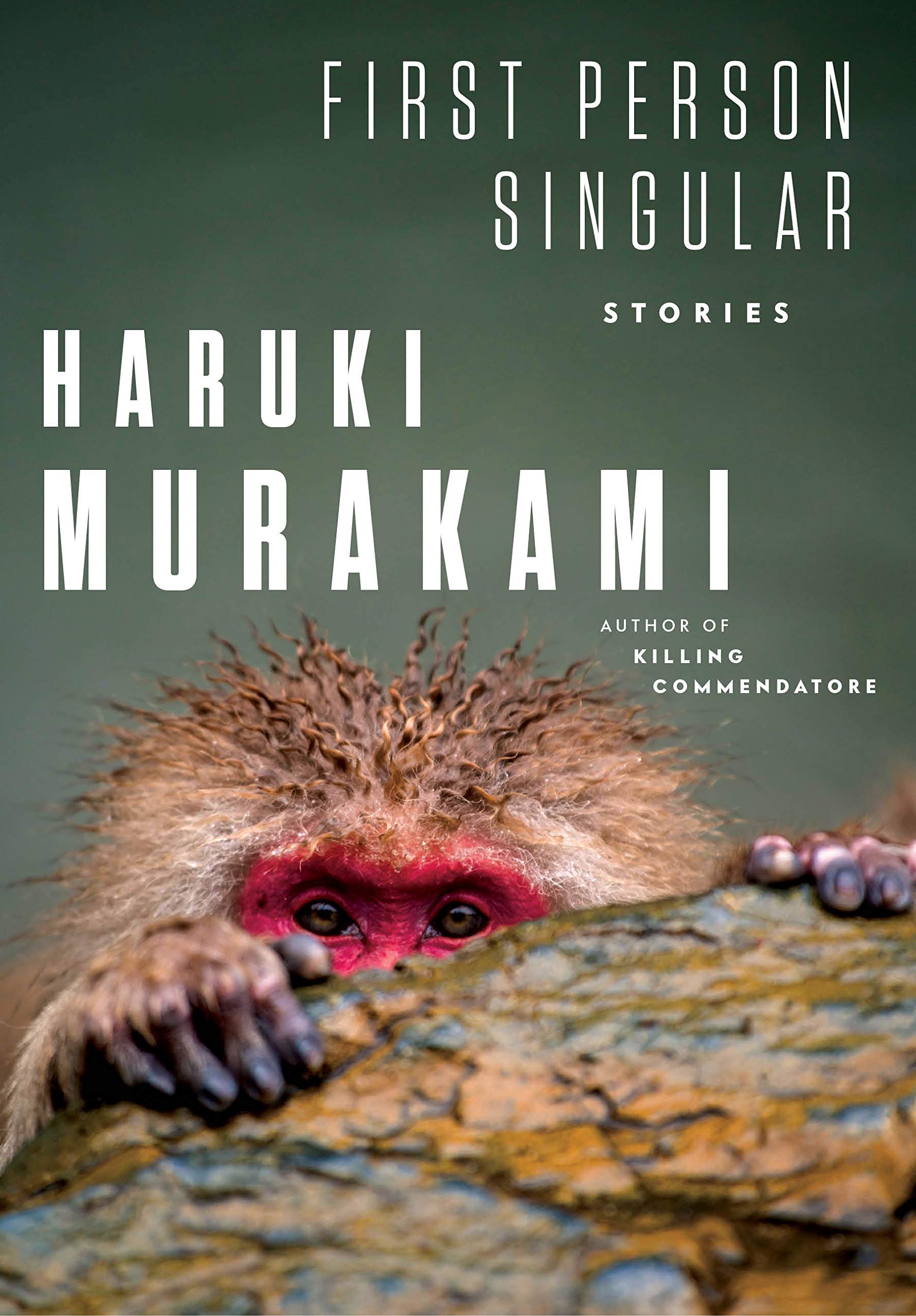
I promised myself to read less Murakami so I could save his works for later…and…this is the second out of three Murakami books I’ve read this year…well, I have no excuses for this. I was feeling sad. So I need to be comforted. And nothing comforts me better than Murakami’s writing and a Gin Tonic. While those two things usually make me even sadder, the next morning, when I wake up, everything will somehow in its’ right place.
I rated this book 3.5/5, because there were just a few stories, and most of them are good, except for the last two. I don’t have much to say about this short story collection. Mostly, I was looking for the familiarity of Murakami, and this one felt quite familiar.
My favourites:
- Cream
- On a Stone Pillow
- Charlie Parker Plays Bossa Nova
- With the Beatles
- Confessions of a Shinagawa Monkey
- Carnaval (I think I like this one best)
9. Cathedral - Raymond Carver

Of course, after the strong first impression of What We Talk About When We Talk About Love, I had to seek out more works by Carver. I’m not sure why, but I feel that the themes Carver tackles often have a similar vibe to Tom Waits’s music. Some good example would be songs like Tango Till They’re Sore or Frank’s Wild Years.
Let me fall out of the window with confetti in my hair. Deal out Jacks or better on a blanket by the stairs. I’ll tell you all my secrets, but I lie about my past. And send me off to bed for evermore.
Therefore, I often listen to Tom Waits’ music during the time I read Carver. Of course, I wouldn’t recommend doing both at the same time. Both of these artists require a certain level of focus to appreciate their works, because just a moment of distraction can make you completely lose track.
I rated this book 4/5. It’s on par with Carver’s previous book. While the minimalist nature of the stories isn’t as prominent in this short story collection, the theme of middle-class American life is still explored in a curious, engaging, and strange way.
My favourites:
- Feathers
- Chef’s House
- Preservation
- The Compartment
- Vitamins
- Careful
- Where I’m Calling From
- Fever
- Cathedral
10. Wind/Pinball: Two Novels - Murakami Haruki

This is the third Murakami book I’ve read this year, because a friend tempted me…
Although this is his first book, his distinctive style was already present in it. There’s a review on the back cover that perfectly summarises this book:
Early Murakami isn’t Murakami-in-the-making, it’s already and entirely Murakami.
Indeed. When I started reading this book, I was mentally prepared for a cultural shock, but no, everything still felt as familiar as if nothing had changed. It turns out Murakami only has one style. Although his writing style has somewhat evolved, the core essence of all the stories he wrote is still preserved over the years.
Quite surprising and enjoyable. So I rated it 4/5, with the review:
So much of his essence in this book still remained with his future works. The only noticeable difference is his writing style, which in my opinion has gotten better but at the same time, still uniquely intriguing in this book.
No highlights. The book was too good so I forgot about highlighting .
11. Notes of a Crocodile - Qiu Miaojin

This is probably my first Taiwanese novel. Also tempted by the same friend earlier…
Overall, this novel focuses on two main themes: homosexuality and existentialism. And it’s no surprise that the author struggles to balance these two major themes at the same time. However, there are some attempts in some chapters of the book that gave me much to think about. If I could turn back time, I would have chosen to read this right after No Longer Human by Dazai… though if I did that, I probably wouldn’t be able to write these lines now.
I rated this book 3.5/5, with this review:
A sad but uplifting coming-of-age story. It offer a deep look into the psychology of self-sabotaging behaviours but sometimes the plot feels a bit forced just to demonstrate this view.
Looking back, this review is heavily influenced by the ending of the story, where the author primarily focuses on the psychology of self-destructive behaviour and…giving advices. Perhaps because of Qiu Miaojin’s background in clinical psychology and feminist theory, the narratives in this book ended up being quite “theoretical.”
Even so, I think the author did a great job of leading from the theme of homosexuality to self-loathing, which leads to self-destructive behaviour, and eventually, the struggle for self-acceptance.
A few highlights:
“That isn’t being forced to do something. It’s your own choice not to make other people disappointed in you,” I said. “So you’re saying that even though I don’t really want to study this subject, it’s still a choice based on my own free will, since my goal is not to disappoint anyone?” Zhi Rou’s reply robbed me of any chance to explain further. (I wish I was that cool)
And that, right there, was the truth. It hit me one night, under a cobalt sky. It was during the summer vacation of my third year, on the cusp of late summer and early autumn, and I’d just moved to Gongguan Road. The evening air was cool. I was sitting at an intersection of Roosevelt Road and a brick road next to a musical instrument shop. The piano melody of “Thanksgiving” played in my head, putting me in a meditative mood as I took a few soft drags from a cigarette and reflected on the five years that had passed since I’d left home for Taipei. People had come into my life and left without a trace. Late at night, I sat in a desolate corner of the city, dispatching lone smoke signals.
Having only known unfulfilled yearnings, I thought that love was a long shot, that keeping my pride intact was a far safer bet. I didn’t think I was worthy of being loved. Though you showed me that you loved me, I assumed it was because you’d never experienced a man’s love, that you didn’t know the social disapproval we’d face, and that you couldn’t tell I was seriously fucked in the head. I thought that in the end, you dill need a man, that you were just going through a confused phase, and that sooner or later, I’d be dumped so that you could move on to the next shiny new thing. (Mate…this is so me.)
The End
So, that’s the end of a successful year. I’ll try to write another post like this next year. Hopefully, my book taste will lean a towards something near the present time rather than the classics like this year. In any case, I still want to have something to say when someone asks me if I’ve read anything from the last decade. We’ll see how it goes.